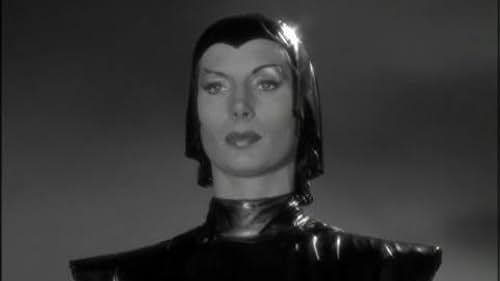David MacDonald(1904-1983)
- Director
- Producer
- Second Unit Director or Assistant Director

Scottish-born David MacDonald got his training in the industry in the
United States under celebrated producer and director
Cecil B. DeMille, who hired him in 1929
as a production assistant. MacDonald returned to Britain in 1936 after
his apprenticeship and directed a dozen of "quota quickies", films that were made quickly and cheaply
to fulfill a British government requirement that a certain percentage
of films shown in the United Kingdom had to be made by British companies.
He achieved some recognition when he made a series of comedies with Barry K. Barnes. During World War II MacDonald joined the Crown Film Unit and produced and directed a series of propaganda war documentaries, including the critically acclaimed Men of the Lightship (1941), and produced two award-winning documentaries by director Roy Boulting--Desert Victory (1943) and Burma Victory (1946).
His postwar career began well with the sharp thriller Snowbound (1948). Unfortunately, his next film, Christopher Columbus (1949), was not successful at the box office, and panned by critics as a leaden, talky and slow epic, an opinion that has considerably changed with the pass of time. MacDonald's career barely recovered from this production. He directed mostly "B" pictures and television episodes for the rest of his career, including thrillers and comedies, with the occasional "A" movie. He is definitely remembered for the notorious and campy sci-fi drama Devil Girl from Mars (1954), which became a cult film in latter years.
He achieved some recognition when he made a series of comedies with Barry K. Barnes. During World War II MacDonald joined the Crown Film Unit and produced and directed a series of propaganda war documentaries, including the critically acclaimed Men of the Lightship (1941), and produced two award-winning documentaries by director Roy Boulting--Desert Victory (1943) and Burma Victory (1946).
His postwar career began well with the sharp thriller Snowbound (1948). Unfortunately, his next film, Christopher Columbus (1949), was not successful at the box office, and panned by critics as a leaden, talky and slow epic, an opinion that has considerably changed with the pass of time. MacDonald's career barely recovered from this production. He directed mostly "B" pictures and television episodes for the rest of his career, including thrillers and comedies, with the occasional "A" movie. He is definitely remembered for the notorious and campy sci-fi drama Devil Girl from Mars (1954), which became a cult film in latter years.
























